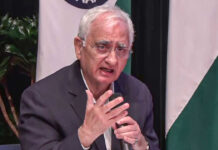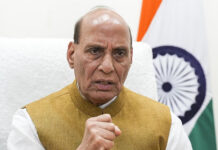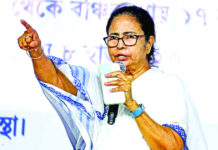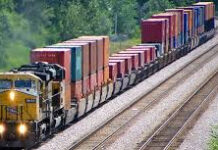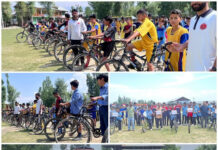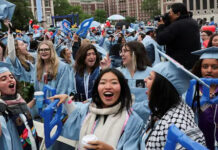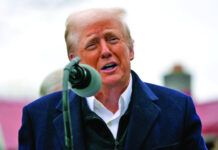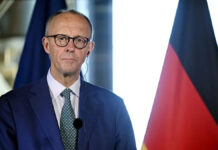For the first time in the history of Jammu and Kashmir, no official function was held to commemorate Martyrs’ Day observed on July 13 every year in memory of those killed in firing by soldiers of Dogra ruler Maharaja Hari Singh in 1931. In a break from past, there was no function at the Martyrs’ graveyard here after the government dropped July 13 from the list of gazetted holidays last year, officials said. The holidays on July 13 as well as on December 5 – the birth anniversary of National Conference founder Sheikh Mohammad Abdullah – were dropped after the abrogation of Article 370 by the Centre on August 5 last year. Sheikh Mohammad Abdullah, the then prime minister of Jammu and Kashmir, had declared July 13 as a holiday in 1948. Apart from the official function at the Martyrs’ graveyard, mainstream political leaders also used to visit it to pay homage to the 22 Kashmiris who were killed in Dogra army’s firing while protesting the autocratic rule of Maharaja Hari Singh. The officials said no mainstream political leader visited the graveyard on Monday in view of the strict restrictions imposed in most parts of Kashmir to contain the spread of coronavirus infection. Separatist Hurriyat Conference led by Mirwaiz Umar Farooq had on Saturday called for a strike on Monday. A National Conference (NC) leader, however, said the party had applied for permission to visit the Martyrs’ graveyard, but there was no response from the district administration. Meanwhile, both NC and Peoples Democratic Party (PDP) – the two regional forces in Jammu and Kashmir – paid glowing tributes to the martyrs on this day. In a statement, the NC said the day marked “the inauguration of struggle of Jammu and Kashmir against oppression and discrimination”. “The day has an emblematic importance for the people of Jammu and Kashmir as it marked the launch of widespread people”s agitation for the restoration of their due human rights… “Every year we invocate, remember the supreme sacrifice of the martyrs of 13 July 1931, the idea behind remembering them is not merely an act of reminiscing past, memorializing, there is more to it, on this day we galvanize our lives with their mission as was done by (NC founder) Sher-e-Kashmir (Sheikh Mohammad Abdullah) all through his life,” NC president Farooq Abdullah said. Farooq Abdullah, the Member of Parliament from Srinagar Lok Sabha constituency, said it is the day of assertion of Jammu and Kashmir”s identity and rights of its people. “The day marks the shift from stoicism to dynamism. It was a fight of the tyrannized against a tyrant, of the oppressed against oppressors… I on this day pay my earnest tributes to all the martyrs who laid their lives on that day to secure a new dawn of freedom for future generations. “The martyrs of 1931 will continue to be a beacon of light for us and for the coming generations. Every single drop of their blood is sacred to us,” he said. NC vice-president Omar Abdullah while paying tributes to the martyrs said the day “marks the collective defiance of the oppressed against oppressors”. “The day is the watershed moment in the people’s struggle for restoration of their universal human rights. It was their valour that inspired millions of others to rise against the then despotic and autocratic regime. We observe the day to reiterate our commitment to fight evil with kindness, violence with non-violence and peaceful struggle,” he said. The PDP, while paying tributes to the martyrs said, their role in Jammu and Kashmir”s “freedom struggle can neither be undone nor can be forgotten”. “The memory of 13th July martyrs cannot be erased by changing the government calendar of holidays as they will live forever in the hearts and memories of every freedom loving democrat,” a PDP spokesman said in a statement. He said the PDP reiterates its commitment to the objectives of justice, empowerment and democratic rights that the martyrs have laid their lives down for.

Dogra Herald is the media of J & K, breaking language and geographical barriers, connecting J & K to the rest of India.
0191 245 4946
info@dograherald.com
Latest articles
No proposal to recognise Bitcoin as a currency: Nirmala Sitharaman
iamjkstarr - 0
NEW DELHI: The government has no proposal to recognise Bitcoin as a currency in the country, Finance Minister Nirmala Sitharaman said in...
Haryana seals borders with Punjab as farmers assemble for ”Delhi Chalo” march
iamjkstarr - 0
Haryana on Thursday completely sealed its borders with Punjab as farmers from the neighbouring state started assembling in large numbers as part...
Another Olympic heartbreak for world no. 1 archer Deepika, crashes out in quarters
iamjkstarr - 0
TOKYO: World number one archer Deepika Kumari''s quest for an Olympic medal ended in heartbreak for the third time as she surrendered...






